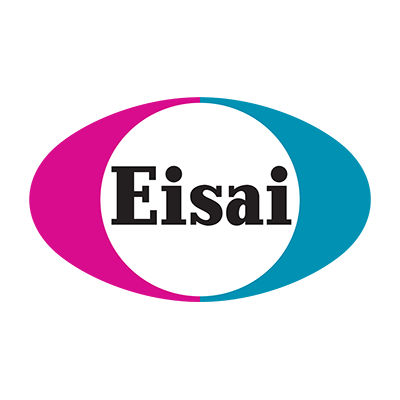预约演示
更新于:2025-11-12

Opus Genetics, Inc.
更新于:2025-11-12
概览
标签
眼部疾病
遗传病与畸形
其他疾病
腺相关病毒基因治疗
小分子化药
基因疗法
疾病领域得分
一眼洞穿机构专注的疾病领域
暂无数据
技术平台
公司药物应用最多的技术
暂无数据
靶点
公司最常开发的靶点
暂无数据
| 排名前五的药物类型 | 数量 |
|---|---|
| 腺相关病毒基因治疗 | 6 |
| 小分子化药 | 5 |
| 基因疗法 | 1 |
关联
12
项与 Opus Genetics, Inc. 相关的药物作用机制 adrenergic receptor拮抗剂 |
最高研发阶段批准上市 |
首次获批国家/地区 美国 |
首次获批日期1952-01-30 |
作用机制 PTGFR激动剂 [+1] |
在研适应症 |
非在研适应症 |
最高研发阶段申请上市 |
首次获批国家/地区- |
首次获批日期- |
靶点 |
作用机制 APE1抑制剂 |
在研机构 |
原研机构 |
最高研发阶段临床2/3期 |
首次获批国家/地区- |
首次获批日期- |
22
项与 Opus Genetics, Inc. 相关的临床试验NCT07140783
RANDOMIZED, PLACEBO-CONTROLLED, DOUBLE-MASKED STUDY OF THE SAFETY AND EFFICACY OF POS (0.75% PHENTOLAMINE OPHTHALMIC SOLUTION) IN PARTICIPANTS WITH PREVIOUS KERATOREFRACTIVE SURGERY WITH DECREASED VISUAL ACUITY UNDER MESOPIC CONDITIONS
The goal of this clinical trial is to learn if Phentolamine Ophthalmic Solution works to treat adults that have had keratorefractive surgery and have decreased visual acuity under mesopic conditions. It will also learn about the safety of Phentolamine Ophthalmic Solution. The main questions it aims to answer are:
Researchers will compare Phentolamine Ophthalmic Solution to a placebo (a look-alike substance that contains no drug) to see if Phentolamine Ophthalmic Solution works to improve vision in low light conditions.
Participants will:
Take Phentolamine Ophthalmic Solution or a placebo drop every day for 2 weeks Visit the clinic once every week for 2 weeks for checkups and tests Keep a diary of when they instill the study medication each evening
Researchers will compare Phentolamine Ophthalmic Solution to a placebo (a look-alike substance that contains no drug) to see if Phentolamine Ophthalmic Solution works to improve vision in low light conditions.
Participants will:
Take Phentolamine Ophthalmic Solution or a placebo drop every day for 2 weeks Visit the clinic once every week for 2 weeks for checkups and tests Keep a diary of when they instill the study medication each evening
开始日期2025-09-02 |
申办/合作机构 |
NCT07185256
A Phase 1b/2a, Open-Label, Dose-Exploration Basket Study to Investigate the Safety and Tolerability of Subretinally Injected OPGx-BEST1 Administered in Patients With Either Autosomal-Dominant BEST1 Disease (Best Vitelliform Macular Dystrophy [BVMD]) or Autosomal-Recessive Bestrophinopathy (ARB)
The goal of this clinical trial is to learn if drug OPGx-BEST1 works to treat BVMD and ARB Bestrophinopathy. It will also learn about the safety of drug OPGx-BEST1. The main questions it aims to answer are:
Evaluate the safety and tolerability of drug OPGx-BEST1 in one eye (the treatment eye), for 5 years post-injection, in participants with BVMD or ARB.
A second question it aims to answer is identification of the most appropriate dose strength of OPGx-BEST1 for clinical development.
Evaluate the efficacy of single injection of OPGx-BEST1 in one eye for 5 years post-injection.
What medical problems do participants have when taking drug OPGx-BEST1?
Evaluate the safety and tolerability of drug OPGx-BEST1 in one eye (the treatment eye), for 5 years post-injection, in participants with BVMD or ARB.
A second question it aims to answer is identification of the most appropriate dose strength of OPGx-BEST1 for clinical development.
Evaluate the efficacy of single injection of OPGx-BEST1 in one eye for 5 years post-injection.
What medical problems do participants have when taking drug OPGx-BEST1?
开始日期2025-09-01 |
申办/合作机构 |
NCT06542497
Randomized, Double-masked, Placebo-controlled, Multicenter Study of the Efficacy and Safety of Phentolamine Ophthalmic Solution (POS) 0.75% in Participants With Presbyopia
Safety and efficacy of POS in participants with presbyopia
开始日期2024-08-15 |
申办/合作机构 |
100 项与 Opus Genetics, Inc. 相关的临床结果
登录后查看更多信息
0 项与 Opus Genetics, Inc. 相关的专利(医药)
登录后查看更多信息
18
项与 Opus Genetics, Inc. 相关的文献(医药)2025-10-01·MOLECULAR THERAPY
Recovery of cone-mediated vision in Lebercilin associated retinal ciliopathy after gene therapy: One-year results of a phase I/II trial
Article
作者: Roman, Alejandro J ; Sun, Junwei ; Chung, William ; Swider, Malgorzata ; Cideciyan, Artur V ; Garafalo, Alexandra V ; Maguire, Albert M ; Weber, Mariejel L ; Bennett, Jean ; O'Neil, Erin C ; Fradin, Makayla ; Tuller, Sarah ; Aleman, Elena M ; Sumaroka, Alexander ; Aleman, Tomas S ; Parchinski, Kelsey M ; Margaritis, Paris ; Jayagopal, Ashwath ; Billek, Andrew ; Uyhazi, Katherine E ; Kim, Rebecca J ; Santos, Arlene J ; Maguire, Katherine H ; Wu, Vivian ; Scoles, Drew H ; Yerxa, Ben
We assessed the preliminary safety of a recombinant adeno-associated virus serotype 8 vector carrying the native human LCA5 cDNA (OPGx-001) in LCA5-associated Leber congenital amaurosis (LCA5-LCA), a congenital blindness. This phase 1b/2a trial (NCT05616793) is a nonrandomized, single ascending, dose-escalation study. Three subjects with LCA5-LCA (ages 19, 26, and 34 years old) received uniocular subretinal injections of 1E10 vector genome per eye of OPGx-001. There were no serious adverse events related to OPGx-001 or the procedure. Retinal microstructure by spectral-domain optical coherence tomography showed no major changes in retinal lamination of the treated central retina compared with the contralateral control. Efficacy was detectable in these severely affected patients by subjective and objective methods at 1-month post-treatment and persisted for at least 12 months. Chromatic full-field stimulus testing showed improvements in cone-mediated vision averaging ∼1 log10 unit. Objective pupillometry confirmed perceptual results. Improvements were associated with better performance on a virtual reality orientation and mobility test. Visual acuity returned to baseline or improved in the treated eyes of all participants. The favorable safety profile and efficacy outcomes pave the path for enrolling milder phenotypes with careful dose escalation.
2025-05-01·OPHTHALMOLOGY
Reply
Letter
作者: Brigell, Mitchell ; Pepose, Jay S ; Charizanis, Kostas
2025-01-01·OPHTHALMOLOGY
Reversal of Pharmacologically Induced Mydriasis with Phentolamine Ophthalmic Solution
Article
作者: Sooch, Mina ; Evans, David ; Coleman, Drey ; Patel, Ronil ; Charizanis, Konstantinos ; Pepose, Jay S ; Withers, Barbara ; Brigell, Mitchell ; Jaber, Reda ; Lazar, Audrey ; Wirta, David ; Rahmani, Kavon
PURPOSE:
To evaluate the safety and efficacy of 0.75% phentolamine ophthalmic solution (POS), an α-adrenergic antagonist, in reversal of pharmacologically induced mydriasis.
DESIGN:
Two phase 3, multicenter, placebo-controlled, randomized, double-masked clinical trials in healthy participants.
PARTICIPANTS:
Five hundred fifty-three healthy 12- to 80-year-old participants were randomized 1:1 (MIRA 2) and 2:1 (MIRA 3) to receive either POS or placebo eye drops in both eyes.
METHODS:
Participants received POS or placebo administered 1 hour after mydriasis, induced by instillation of either 2.5% phenylephrine, 1% tropicamide, or 1% hydroxyamphetamine / 0.25% tropicamide.
MAIN OUTCOME MEASURES:
Percent of participants returning to within 0.2 mm of baseline pupil diameter in study eye 90 minutes after POS administration. Safety measures included treatment-emergent adverse events and tolerability measures, including conjunctival hyperemia.
RESULTS:
A total of 553 participants were randomized to treatment with placebo (n = 215) or POS (n = 338). A statistically significant greater percentage of participants treated with POS showed reversal of mydriasis at 90 minutes compared to placebo (MIRA 2: 48.9% vs. 6.6% [P < 0.0001]; MIRA 3: 58% vs. 6% [P < 0.0001]) and as early as 60 minutes (MIRA 2: 27.7% vs. 2.2% [P < 0.0001]; MIRA 3: 42% vs. 2% [P < 0.0001]). Between 28% and 34% of participants receiving placebo did not returned to baseline PD at 24 hours after pharmacologic dilation compared with 8% to 11% of patients treated with POS (P < 0.0001).
CONCLUSIONS:
Treatment with POS reduced PD within 60 to 90 minutes, with a statistically significant time savings of 5 to 6 hours to return to baseline PD compared with placebo. One or 2 drops of POS rapidly reversed mydriasis in all participants regardless of mydriatic agent or iris color. More participants receiving POS reported a benefit in the resolution of visual symptoms caused by pharmacologically induced mydriasis compared with placebo, with statistically significant differences noted as early as 1 hour. The safety profile was favorable, with the most common adverse effects being mild transient conjunctival hyperemia (11.2%), instillation site discomfort (10.9%), and dysgeusia (3.6%).
FINANCIAL DISCLOSURE(S):
Proprietary or commercial disclosure may be found in the Footnotes and Disclosures at the end of this article.
233
项与 Opus Genetics, Inc. 相关的新闻(医药)2025-11-10
行业动态速览
热点聚焦
01
谈判成功!百万一针的基因细胞疗法,有望纳入商保
2025年11月2日下午3点多,在国家医保目录现场谈判与商保创新药目录价格协商现场,合源生物首席执行官带领谈判团队走出会场,面对记者的询问,她面带笑容地表示:“谈成了!”尽管最终结果仍需以国家医保局正式公布为准,但这一积极信号无疑为“天价”CAR-T基因细胞治疗药物的可及性带来了历史性转机。
推荐阅读:谈判成功!百万一针的基因细胞疗法,有望纳入商保
02
全球首款天使综合征AAV基因疗法完成首位受试者给药
近日,MavriX Bio公司宣布,其用于治疗天使综合征的在研AAV基因疗法MVX-220的1/2期临床试验ASCEND-AS (NCT07181837) 已完成首位患者给药。这一里程碑事件不仅标志着全球首款针对天使综合征的基因疗法正式进入人体临床评估阶段,也为整个神经发育障碍领域带来了新的希望。
推荐阅读:全球首款天使综合征AAV基因疗法完成首位受试者给药
03
一款眼科AAV基因疗法获美国FDA积极反馈,即将开展关键性临床III期研究
近日,Opus Genetics公司宣布,其在研AAV8基因疗法OPGx-LCA5的临床开发计划获得了美国FDA的积极支持,即将进入关键性III期临床研究阶段,为这一超罕见的遗传性视网膜疾病治疗带来了新的曙光。
推荐阅读: 一款眼科AAV基因疗法获美国FDA积极反馈,即将开展关键性临床III期研究
04
1.41亿美元B轮融资!开发眼科基因疗法
2025年11月3日,AAVantgarde Bio,一家专注于治疗遗传性视网膜疾病(IRDs)的临床阶段生物技术公司,宣布成功完成1.41亿美元的B轮融资。本轮融资由Schroders Capital作为新领投方,与现有投资者Atlas Venture和Forbion共同领投。其他新投资者包括Amgen Ventures、Athos Capital、CDP Venture Capital(通过其大型风险基金)、Columbia IMC、Neva SGR、Sixty Degree Capital、XGen Venture和Willett Advisors。公司还获得了现有投资者Longwood Fund和Sofinnova Partners的持续大力支持。
推荐阅读:1.41亿美元B轮融资!开发眼科基因疗法
05
巨星陨落!DNA双螺旋结构发现者詹姆斯·沃森逝世
2025年11月6日,美国著名分子生物学家詹姆斯·沃森(James Watson)逝世,享年97岁。作为DNA双螺旋结构的共同发现者之一,沃森的名字早已镌刻在现代生命科学的丰碑之上。
推荐阅读: 巨星陨落!DNA双螺旋结构发现者詹姆斯·沃森逝世
创新突破
01
Nat Biotechnol | 利用工程化重组酶在人体基因组中实现位点特异性DNA插入
2025年11月6日,美国Arc研究所Patrick D. Hsu教授团队在Nature Biotechnology期刊在线发表题为“Site-specific DNA insertion into the human genome with engineered recombinases”的研究论文。本研究建立了系统的重组酶工程化框架,通过定向进化、结构建模、机器学习与dCas9融合等策略,实现了对大丝氨酸重组酶(LSR)的高效优化。研究团队以Dn29为模型,获得了多种高性能变体(superDn29、goldDn29和hifiDn29),在内源人基因组位点实现高达53%的整合效率和97%的特异性。优化后的系统能够在非分裂细胞、干细胞及初级T细胞中高效整合长达12 kb的DNA序列,维持稳定表达且几乎无转录组扰动。
推荐阅读: Nat Biotechnol | 利用工程化重组酶在人体基因组中实现位点特异性DNA插入
02
Nat Commun | 上海交通大学仇子龙团队合作报道工程化APOBEC胞苷脱氨酶与PUF蛋白融合,实现高效体内RNA碱基编辑
2025年11月4日,上海交通大学医学院仇子龙教授与南方科技大学王泽峰教授团队在Nature Communications发表研究论文“Effective in vivo RNA base editing via engineered cytidine deaminase APOBECs fused with PUF proteins”。本研究利用AI辅助结构设计优化APOBEC家族蛋白,构建出高效特异的RNA碱基编辑系统CU-REWIRE5,可在体内实现C-to-U编辑。
通过AAV介导递送,研究者在小鼠肝脏中靶向Pcsk9 mRNA显著降低胆固醇水平,并在自闭症模型中修复Mef2c突变、改善社交行为。该工作为RNA层面治疗遗传病提供了新型精准编辑工具。
推荐阅读:Nat Commun | 上海交通大学仇子龙团队合作报道工程化APOBEC胞苷脱氨酶与PUF蛋白融合,实现高效体内RNA碱基编辑
03
Nat Biomed Eng | 一种修饰的LNP-mRNA复合物,用于改善心脏中的基因编辑
2025年11月3日,美国加州大学伯克利分校Kevin E. Healy教授团队在Nature Biomedical Engineering期刊发表题为“A microphysiological system for screening lipid nanoparticle–mRNA complexes predicts in vivo heart transfection efficacy”的研究论文。本研究利用人源三维心脏微生理系统筛选出酸敏降解型PEG脂质改性的LNP,可显著提高mRNA在心脏中的递送与基因编辑效率。优化后的LNP在体内表现出更高的心脏转染比例及更低的肝脾摄取,而不影响心功能。
本研究为心脏mRNA治疗提供了可预测的体外筛选平台,并为非病毒递送体系在心脏疾病中的应用奠定基础。
推荐阅读:Nat Biomed Eng | 一种修饰的LNP-mRNA复合物,用于改善心脏中的基因编辑
04
NEJM丨CAR-T疗法解溃疡性结肠炎多药耐药困境
近日,来自德国埃尔朗根-纽伦堡大学的Fabian Müller等人在NEJM上发表了一篇题为CD19 CAR T-Cell Therapy in Multidrug Resistant Ulcerative Colitis的文章。从UC黏膜炎症中存在大量B细胞和浆细胞浸润入手,瞄准现有疗法中无针对激活B细胞系统的空白,对一名多药耐药性UC患者进行了CD19 CAR-T细胞治疗,并取得显著疗效。
推荐阅读: NEJM丨CAR-T疗法解溃疡性结肠炎多药耐药困境
资本速递
01
国内一基因治疗公司完成C轮融资
近日,上海国投先导私募基金管理有限公司(以下简称“国投先导”)宣布,在上海市科委、市委金融办的支持下,国投先导作为领投方联合正心谷资本等知名投资机构完成对上海天泽云泰生物医药有限公司(以下简称“天泽云泰“或“公司”)的C轮融资。
推荐阅读:国内一基因治疗公司完成C轮融资
02
国内一家体内细胞治疗公司完成超亿元天使轮融资
近日,专注于体内细胞治疗领域的企业——微滔生物科技(上海)有限公司(以下简称“微滔生物”或“公司”)宣布完成超亿元人民币天使轮融资。该融资由启明创投领投,B Capital、杏泽资本及顺禧基金跟投。融资所得将主要用于推进其核心技术平台的迭代升级,并加速首款候选产品在自免疾病治疗上的研发进程。
推荐阅读:国内一家体内细胞治疗公司完成超亿元天使轮融资
关于派真生物
基因疗法临床3期引进/卖出细胞疗法
2025-11-09
罕见病信息网隆重推出《壹周罕见药闻》这一独具特色的品牌栏目。该栏目在每周日更新,以呈现当周罕见病领域的最新消息和下周的罕见病活动预告。我们以更高端、更权威的视角,为您剖析最新、最热门的罕见病信息。
罕药快讯
01 全球首款天使综合征AAV基因疗法完成首位受试者给药
近日,MavriX Bio公司宣布,其用于治疗天使综合征的在研AAV基因疗法MVX-220的1/2期临床试验ASCEND-AS (NCT07181837) 已完成首位患者给药。这一里程碑事件不仅标志着全球首款针对天使综合征的基因疗法正式进入人体临床评估阶段,也为整个神经发育障碍领域带来了新的希望。
02 FDA批准Opus Genetics基因治疗LCA5突变第三期临床实验
11月7日宣布,Opus Genetics, Inc.公司,已成功完成与美国食品药品监督管理局 (FDA) 就其用于治疗由 LCA5 基因突变引起的莱伯先天性黑蒙 (LCA) 的基因疗法候选药物 OPGx-LCA5 举行的 B 类再生医学高级疗法 (RMAT) 会议。
此次会议中,FDA就Opus公司注册策略的关键要素,包括化学、生产和控制(CMC)以及关键性试验设计,提出了建设性反馈意见。FDA承认LCA5相关失明患者存在巨大的未满足医疗需求,并重申了其对罕见遗传病监管灵活性的承诺。
03 新药集聚进博会,成人特发性肺纤维化治疗药物有新进展
勃林格殷格翰在本届进博会上带来了今年10月在国内获批上市的那米司特片。
勃林格殷格翰展台工作人员介绍,那米司特片是治疗成人特发性肺纤维化的新疗法。该药是一款口服PDE4B抑制剂,选择性抑制PDE4B同工酶。通过抑制PDE4B同工酶等相关通路,那米司特片展现了抗纤维化和免疫调节的双重效果。目前,该公司已提交那米司特片用于治疗成人进展性肺纤维化适应证的上市注册申请。
04 新药集聚进博会,嗜酸性肉芽肿性多血管炎治疗药物有新进展
在进博会的葛兰素史克展台,拓展了新适应证的美泊利珠单抗注射液也有不少人围观。
葛兰素史克工作人员介绍,美泊利珠单抗注射液于2021年11月在国内获批,2022年正式上市,是治疗嗜酸性肉芽肿性多血管炎的靶向药物。之后,该公司对美泊利珠单抗注射液进行了拓展新适应证的研究,于 2025年1月获批用于治疗成人未充分控制慢性鼻窦炎伴鼻息肉。今年2月,美泊利珠单抗注射液治疗慢阻肺适应证的上市申请获得国家药监局药品审评中心受理。
05 新药集聚进博会,遗传性大疱性表皮松解症(EB)治疗药物有新进展
在进博会,凯西医药带来了遗传性大疱性表皮松解症(EB)的治疗药物桦醇三萜外用凝胶(Filsuvez®)。
遗传性大疱性表皮松解症(EB)是一组罕见且极其痛苦的遗传性皮肤病。患者因基因突变导致皮肤和黏膜异常脆弱,仅是轻微摩擦或损伤即可导致患者皮肤有水疱或糜烂,痛感强烈。因皮肤和黏膜如同脆弱的蝴蝶翅膀,患者被称为“蝴蝶宝贝”。
据了解,桦醇三萜外用凝胶是全球首个获批用于治疗6月龄及以上营养不良型(DEB)和交界型(JEB)患者相关伤口的创新药物。该药已于2022年、2023年先后在欧盟和美国批准上市。目前,桦醇三萜外用凝胶已在国内提交了注册上市申请,并在海南博鳌乐城国际医疗旅游先行区获批使用。
06 新药集聚进博会,希佩尔-林道综合征(VHL病)治疗药物有新进展
在进博会,默沙东展出了希佩尔-林道综合征(VHL病)的治疗药物贝组替凡片。
VHL病是一种罕见的常染色体显性遗传性疾病,是由位于染色体3p25-26的VHL病基因抑癌基因突变所致。VHL病常表现为多器官肿瘤综合征,如中枢神经系统血管母细胞瘤、视网膜血管母细胞瘤、肾细胞癌、胰腺肿瘤等。
据默沙东工作人员介绍,贝组替凡片适用于不需要立即手术治疗的VHL病相关肾细胞癌、中枢神经系统血管母细胞瘤或胰腺神经内分泌肿瘤成人患者。该药于2024年11月在中国获批,于2025年5月正式上市。
07 全球首款体内基因编辑疗法爆出患者死亡事件
11月6日,基因编辑领域的明星公司Intellia Therapeutics宣布,此前一名接受nex-z (NTLA-2001) 治疗而出现严重肝毒性事件的患者已于11月5日晚间不幸离世。这一意外事件不仅给该产品的未来蒙上了浓厚阴影,也将体内基因编辑疗法的安全性问题推至风口浪尖。
08 中国速度!6 个月获批,全球首个罕见病创新药落地中国
11月6日,赛诺菲宣布旗下创新药物可倍力@(注射用卡拉西珠单抗,英文商品名:Cablivi®)正式获得国家药品监督管理局(NMPA)批准,用于与血浆置换和免疫抑制疗法联合治疗获得性血栓性血小板减少性紫癜(aTTP,也称为免疫介导的血栓性血小板减少性紫癜(iTTP))的成人和12岁及以上体重至少40kg的青少年患者。
09 Sarepta重磅DMD药物确证性III期临床未达主要终点
近日,Sarepta Therapeutics公司宣布,其用于治疗杜氏肌营养不良症(DMD) 的两款PMO药物AMONDYS 45和VYONDYS 53的全球III期确证性研究ESSENCE未能在主要终点上达到统计学显著性。这一结果为这两款已获加速批准药物的“转正”之路蒙上了浓厚阴影,并引发了市场对其未来监管路径的担忧,公司股价在盘后交易中应声大跌。
10 首款!减缓“渐冻症”疾病进展近80%,潜在“first-in-class”小分子积极数据公布
Spinogenix11月5日公布了其2a期临床试验的初步积极顶线结果。该试验评估在研疗法SPG302用于肌萎缩侧索硬化症(ALS)患者的治疗效果。根据新闻稿,SPG302是首款突触再生药物,可减缓ALS患者的疾病进展。
这项2a期随机、双盲、安慰剂对照临床试验共纳入23名ALS患者,旨在评估SPG302的安全性、耐受性及药效学生物标志物。试验首先进行28天的双盲、SPG302与安慰剂对照治疗,随后所有参与者均接受额外140天的SPG302治疗。这是该疗法首次用于ALS患者的临床研究,旨在从小规模人群中验证前期动物模型中SPG302显著的药理活性,以指导后续更大规模临床试验的设计。
11 上海莱士获批SR604注射液用于血管性血友病预防治疗
11月5日,上海莱士发布公告称,收到国家药品监督管理局核准签发的关于SR604注射液新增用于血管性血友病患者出血发作预防治疗的《药物临床试验批准通知书》。
SR604注射液是一种人源化高亲和力结合人活化蛋白C的单克隆抗体制剂,已完成针对血友病A/B及先天性凝血因子Ⅶ缺乏症患者的相关临床试验,并进入针对血管性血友病患者的Ⅱ期剂量探索试验,且研究目标已达成,具体数据将发表在国际会议和专业期刊上,目前全球尚无同靶点产品上市。此外,2025年前三季度,上海莱士实现收入60.91亿元,归母净利润14.71亿元。
12 NP001治疗渐冻症患者完成首例给药
11月5日,由首都医科大学附属北京天坛医院作为牵头单位开展的人自体多克隆调节性T细胞注射液(NP001细胞注射液)治疗肌萎缩侧索硬化症(ALS,俗称“渐冻症”)的Ⅰ/Ⅱa期注册临床试验,顺利完成首例患者给药。
该例患者在输注后次日顺利出院,初步观察安全耐受性良好,未出现明显异常,标志着该疗法在临床转化中迈出关键一步,也为后续多中心研究的开展提供了重要的初步安全性依据。
13 全球首款!成人和儿童胸苷激酶 2 缺乏症(TK2d)新药获批,降低死亡风险近90%
优时比(UCB)11月4日宣布,其研发的KYGEVVI(doxecitine and doxribtimine) 获美国 FDA 批准上市,用于治疗起始年龄≤12 岁的成人和儿童胸苷激酶 2 缺乏症(TK2d)患者,是全球首款且唯一获批的 TK2d 针对性治疗药物。同时,该疗法也正在接受欧洲药品管理局(EMA)的监管审评。
14 基因疗法遇挫!FDA反转,公司股价暴跌
研发企业uniQure于11月3日宣布,其 9 月公布的被称为 “突破性” 的研究数据 —— 显示基因治疗候选药物 AMT-130 能显著减缓亨廷顿舞蹈症(HD)患者的病情进展 —— 可能不足以获得 FDA 批准。这使得原本计划2026年一季度提交的生物制品许可申请(BLA)陷入不确定性。
罕圈动态
01 神经系统罕见病破局,需要这三样东西!
11月6日,第八届中国国际进口博览会期间,由蔻德罕见病中心与灵北共同发起的“构建DEE健康新生态:聚焦发育性癫痫性脑病的科学突破与全方位支持”圆桌论坛成功举办。
论坛汇聚了来自医疗界、产业及患者组织的多方代表,共同探讨DEE这一难治性神经罕见病的临床挑战、创新药物进展、政策支持与患者关怀体系构建等关键议题。
02 罕见病创新疗法开发平台获2025年世界互联网大会领先科技奖
11月6日下午,2025年世界互联网大会领先科技奖颁奖典礼在乌镇举行,现场发布了17个具有国际代表性的年度获奖项目。
作为面向互联网领域的国际性科技奖项,世界互联网大会领先科技奖旨在引领科技前沿创新,倡导技术交流合作。“今年科技奖获得了全球的广泛关注,评审委员会共收到了来自34个国家和地区的424项科技成果。”世界互联网大会领先科技奖评审委员会主席、中国工程院院士邬贺铨说,今年获奖的项目具有智能驱动、深度融合、场景牵引的特点。
03 人人都爱Max Mara的理由+1!这场时装秀,为罕见病公益助力
近日,全球非营利组织 CureDuchenne 在沙迪峡谷高尔夫俱乐部(Shady Canyon Golf Club)举办第二届纽波特比奇女士午宴,同时携手意大利奢侈品牌 Max Mara,在南海岸广场(South Coast Plaza)呈现专属时装秀 —— Max Mara的经典剪裁与精致面料在秀场上流转,尽显意大利设计的永恒魅力,而患者们的真情讲述让现场嘉宾动容,也让公益的温度透过时尚舞台传递开来。
活动以时尚展示、患者故事分享、科研进展分享等形式,为杜氏肌营养不良(DMD)治愈研究募集资金,也让更多人看见罕见病患者背后的坚守与对生命的渴望。
04 “医药界诺贝尔奖”揭晓!最佳罕见病产品奖公布
近日,美国盖伦基金会(The Galien Foundation)公布了被誉为“医药界诺贝尔奖”的盖伦奖(Prix Galien USA Awards)2025年度获奖名单。
该奖项由法国药物学家Roland Mehl于1969年创立,被誉为医药界的“诺贝尔奖”,是制药和生物医疗行业的最高荣誉之一,旨在表彰为改善人类健康做出杰出贡献的科学创新。
05 1.41亿美元融资!开发眼科基因疗法
11月3日,AAVantgarde Bio 成功筹集 1.41 亿欧元,用于推进其针对遗传性眼病的基因治疗项目。此轮融资由 Schroders 领投,现有投资者 Atlas Venture 和 Forbion 跟投,Amgen Ventures 以及多家新投资方也参与了本轮融资。
06 英国350万罕见病患者的希望来了!政府将大幅改革监管框架
英国政府11月2日发布消息称,将对罕见病治疗的监管框架进行大幅改革,旨在加快从研发到患者可及的全链条进程。这一举措是英国政府推进生命科学战略的重要组成部分。
据英国药品和医疗产品监管局介绍,英国目前约有350万罕见病患者,仅有不到5%的罕见病拥有获批治疗方案,患者平均确诊耗时5.6年,30%的患病儿童在5岁前夭折。
07 美国基因编辑疗法迈入“快车道”,为罕见病定制药研发开绿灯
彭博社10 月 31 日发布博文,报道称美国食品药品监督管理局(FDA)计划简化个性化基因编辑疗法的审批流程,通过合并相似罕见病症的临床试验,为个性化基因编辑疗法开辟“快车道”。
这项改革的核心在于监管思路的根本性转变。FDA 过去要求每一种新疗法,哪怕针对的是极为相似的疾病,都必须进行独立的临床研究与审批,这一过程耗时且成本高昂。
08 第九届神经系统疑难罕见病学术会议”成功举办
10月31日,由广东省临床医学学会主办、广东省临床医学学会脑炎培训中心承办的第九届神经系统疑难罕见病学术会议在广东三九脑科医院顺利举办。本次会议邀请了省内神经系统疾病领域的专家分享经验成果,为破解临床漏诊误诊难题,提升诊疗水平搭建专业交流平台。
脑炎培训中心自成立以来,始终推动神经系统疾病诊疗规范化、精准化发展。未来,我院将依托多学科协作优势,持续追踪领域前沿,将成果转化为临床服务能力,让更多患者享受到精准高效的诊疗,守护大众神经系统健康。
活动预告
01【患者招募】基因治疗 α1 - 抗胰蛋白酶缺乏症(AATD)项目报名啦!
目前,一项YOLT-202新型基因治疗AATD的安全性和有效性临床研究工作正在进行。YOLT-202 给药修复 SERPINA1 等位基因中的单碱基突变,从而恢复血液中的功能性野生型AAT蛋白,同时减少异常Z-AAT蛋白的存在,以治疗AATD 相关的肺病和/或肝病。这将大大改善受影响患者的生活质量,减少相关并发症的发生,提高患者生存率。该项目已被医院伦理委员会批准用于临床试验。
如果您符合以下标准,则有可能参与此项研究:
1、年龄≥18岁且≤75岁的男性或女性(含边界值);
2、诊断为AATD且通过基因检测确认为PiZZ突变纯合子;
3、血液中总AAT水平小于11 μM或等效的mg/dL蛋白质;
4、接受增强治疗的患者必须愿意在入组接受给药前至少6周以及在研究期间停止增 强治疗(除非临床上提示需要)。
在参加本研究之前,您将接受额外的检查,经过筛选,最终由研究医生判断您是否符合全部标准。
02 【患者招募】慢性炎性脱髓鞘性多发性神经根神经病两项国际多中心 III 期研究启动
近日,福建医科大学附属协和医院两项慢性炎性脱髓鞘性多发性神经根神经病(CIDP)国际多中心III期研究同步招募启动,均聚焦新型药物riliprubart的疗效与安全性评价,为不同治疗需求的患者带来新希望。两项研究均已通过医院伦理委员会批准,现将核心招募信息公布如下:
03 中德美英等十余国专家齐聚!2025国际线粒体病大会暨儿童罕见病国际论坛即将举办
由复旦大学医学遗传研究院、国家儿童医学中心复旦大学附属儿科医院、国家儿童医学中心首都医科大学附属北京儿童医院主办,蔻德罕见病中心及瑞鸥公益基金会联合主办的 “2025 国际线粒体病大会暨儿童罕见病国际论坛”,将于2025年11月21日至23日在上海国际会议中心东方滨江大酒店隆重举行。
04 “同心行动,助线新生”2025线粒体病医患交流会(上海)开启报名了!
去年秋天,首都医科大学附属北京儿童医院、蔻德罕见病中心主办的心灵治愈之旅——“我由我定义|线粒体病医患交流会”成功举办。我们共同走过了一年的旅程,许久未见,但心中的那份牵挂与期待从未改变。我们欣喜地宣布——2025年11月23日“同心行动,助线新生”2025线粒体病医患交流会,再次邀您相聚上海!
在这里你会收获:
患者家庭免费参加11月22~23日的2025年国际线粒体病大会的机会
11月23日医患交流会免费参会名额
医患交流会最专业的疾病相关医学知识和指导建议
了解最新的科研进展状况,以及为推动药物研发问世,我们可以做的努力
未来共同行动起来推动线粒体病国内研究进展
广大病友凝聚力量,提高病友组织的团队实力,探索患者组织的工作方法
规划家庭联盟发展,为推动全国线粒体病家庭联盟的发展我们共同出力,
病友间难得的聚会,一吐为快,你的心声,我们能听见
04 和我们一起助力中国罕见病事业 | 蔻德罕见病中心2025年度招聘计划
蔻德罕见病中心(CORD)是一家专注于中国罕见病行业的公益性患者倡导机构,自2013年由黄如方先生创立以来,始终坚持以患者利益为核心,推动中国罕见病行业的积极发展,经过多年的发展,在各利益方的支持下,CORD取得了有目共睹的成绩,得到了患者家庭及行业的广泛赞誉,已经逐渐成为全国最大规模、最具国际视野及最有影响力的机构。我们的工作始终离不开更多人才的加入和支持,我们欢迎每一个有专业背景、有远大志向、认同我们的使命和价值观的同仁能够加入我们!
05 无陷未来·罕见病关爱行动项目开始啦!对遗传代谢类罕见病患儿购买特医奶粉的费用进行援助
为加强出生缺陷防治,减少出生缺陷所致残疾,推进健康中国建设,对以甲基丙二酸血症为代表的17种遗传代谢类罕见病患儿进行有效管理。中国出生缺陷干预救助基金会联合阿里巴巴公益、阿里健康公益共同发起“无陷未来·罕见病关爱行动项目”,对遗传代谢类罕见病患儿购买特殊医学用途配方奶粉(下简称“特医奶粉”)的费用进行援助。提供“治疗、诊断、康复、健康管理、随访”等一体化服务,让患儿家庭可以得到更及时和有效的治疗和帮助。
遗传代谢类罕见病患儿“特医奶粉”援助
1年龄要求
18周岁(含)以下;
2覆盖病种
临床诊断甲基丙二酸血症、丙酸血症等17种遗传代谢类罕见病。提供疾病诊断证明复印件。
3实施时间
在阿里健康罕见病关爱平台(淘宝APP搜索“罕见病关爱平台”)专区购买特医奶粉*,且票据时间为2025年4月1日(含)至2026年3月31日(含)之间。
4如何申请
淘宝APP搜索“罕见病关爱平台”,按项目页面要求填报并申请即可。
推 荐 阅 读
临床3期基因疗法上市批准免疫疗法快速通道
2025-11-07
注:本文不构成任何投资意见和建议,以官方/公司公告为准;本文仅作医疗健康相关药物介绍,非治疗方案推荐(若涉及),不代表平台立场。任何文章转载需得到授权。
2025年11月6日,Opus Genetics宣布已成功完成与美国食品药品监督管理局 (FDA) 就其用于治疗由 LCA5 基因突变引起的Leber先天性黑蒙症 (LCA) 的基因疗法候选药物OPGx-LCA5 举行的B类再生医学高级疗法 (RMAT) 会议,支持OPGx-LCA5进入关键性适应性3期试验。
此次会议中,FDA就Opus公司注册策略的关键要素,包括化学、生产和控制(CMC)以及关键性试验设计,提出了建设性反馈意见。FDA承认LCA5相关失明患者存在巨大的未满足医疗需求,并重申了其对罕见遗传病监管灵活性的承诺。鉴于患者人数不足1000人,公司计划申请采用FDA新的罕见病证据原则审查流程。
OPGx-LCA5是一款基于重组腺相关病毒8 (rAAV8) 载体的基因增补疗法,其核心作用机制是利用rAAV8载体将一个功能完好的LCA5基因精准地递送至患者的视网膜外层细胞“补充”缺失的lebercilin蛋白,从而从根本上修复或恢复感光细胞的功能。OPGx-LCA5已获得FDA授予的罕见儿科疾病、孤儿药和再生医学先进疗法(RMAT)认定。
目前,OPGx-LCA5正在宾夕法尼亚大学进行I/II期临床试验。迄今为止,已有6名晚期患者接受了OPGx-LCA5治疗。
来自儿科受试者的数据显示,视锥细胞介导的视力显著改善。
成年组患者的视锥细胞敏感度和视觉功能在长达18个月的时间内均表现出持久改善。
且该疗法耐受性良好,未出现严重的眼部不良事件或剂量限制性毒性。
Opus将把FDA的反馈意见纳入其更新的临床开发和CMC计划中,用于该研究的3期部分,包括在单组12个月的研究中招募至少8名参与者,采用适应性设计,从而在终点和参与者人数方面提供灵活性,这反映了LCA5是一种罕见疾病,具有紧急的医疗需求。
公司预计,该试验的3期部分将包括给药前的导入期,以评估每位受试者的自然病程,从而作为其自身对照。Opus公司正在积极招募该阶段的患者,并已招募了首位受试者。疗效和安全性将通过视力、全视野刺激测试、微视野检查和多亮度定向和移动测试(MLoMT)等指标进行评估。在采用预期商业化工艺生产的经验证的临床药物供应到位后,预计将于2026年下半年开始使用OPGx-LCA5进行给药,主要临床数据预计将在大约一年后公布。
11月6日,Opus刚刚完成2300万美元融资,本轮融资由Perceptive Advisors和Balyasny Asset Management牵头,Nantahala Capital参投,新老机构投资者均参与其中。Opus计划将募集资金净额用于推进其LCA5和BEST-1基因疗法临床项目,以及补充营运资金和用于一般公司用途。根据目前的运营计划,包括本次发行的预期收益在内,公司预计其现金资源足以支持运营至2027年下半年,但不包括任何可赎回认股权证的潜在收益或未来里程碑付款。
“随着近期融资的完成,我们已做好充分准备,以严谨的态度和紧迫的行动推进LCA5项目,为患者群体提供应有的帮助。随着LCA5关键性试验的进展以及针对BEST1相关疾病的第二个基因治疗项目的临床试验启动,我们正迈入下一个发展阶段,致力于打造全球领先的遗传性视网膜疾病基因治疗产品组合。” Magrath博士总结道。
参考资料:公司公告
扫码进群
掌握CAR-T疗法 、干细胞疗法、基因
疗法、溶瘤病毒、核酸药物全方位信息
基因疗法临床3期孤儿药快速通道临床结果
100 项与 Opus Genetics, Inc. 相关的药物交易
登录后查看更多信息
100 项与 Opus Genetics, Inc. 相关的转化医学
登录后查看更多信息
组织架构
使用我们的机构树数据加速您的研究。
登录
或

管线布局
2026年02月28日管线快照
管线布局中药物为当前组织机构及其子机构作为药物机构进行统计,早期临床1期并入临床1期,临床1/2期并入临床2期,临床2/3期并入临床3期
临床前
7
2
临床2期
临床3期
2
1
申请上市
其他
9
登录后查看更多信息
当前项目
| 药物(靶点) | 适应症 | 全球最高研发状态 |
|---|---|---|
拉坦前列素/酚妥拉明 ( PTGFR x adrenergic receptor ) | 瞳孔散大 更多 | 申请上市 |
甲磺酸酚妥拉明 ( adrenergic receptor ) | 老花眼 更多 | 临床3期 |
APX3330 ( APE1 ) | 糖尿病性视网膜病变 更多 | 临床2/3期 |
OPGx-BEST1 ( BEST1 ) | 卵黄状黄斑营养不良 更多 | 临床1/2期 |
OPGx-001 ( LCA5 ) | 莱伯先天性黑蒙症5型 更多 | 临床1/2期 |
登录后查看更多信息
药物交易
使用我们的药物交易数据加速您的研究。
登录
或

转化医学
使用我们的转化医学数据加速您的研究。
登录
或

营收
使用 Synapse 探索超过 36 万个组织的财务状况。
登录
或

科研基金(NIH)
访问超过 200 万项资助和基金信息,以提升您的研究之旅。
登录
或

投资
深入了解从初创企业到成熟企业的最新公司投资动态。
登录
或

融资
发掘融资趋势以验证和推进您的投资机会。
登录
或

生物医药百科问答
全新生物医药AI Agent 覆盖科研全链路,让突破性发现快人一步
立即开始免费试用!
智慧芽新药情报库是智慧芽专为生命科学人士构建的基于AI的创新药情报平台,助您全方位提升您的研发与决策效率。
立即开始数据试用!
智慧芽新药库数据也通过智慧芽数据服务平台,以API或者数据包形式对外开放,助您更加充分利用智慧芽新药情报信息。
生物序列数据库
生物药研发创新
免费使用
化学结构数据库
小分子化药研发创新
免费使用
